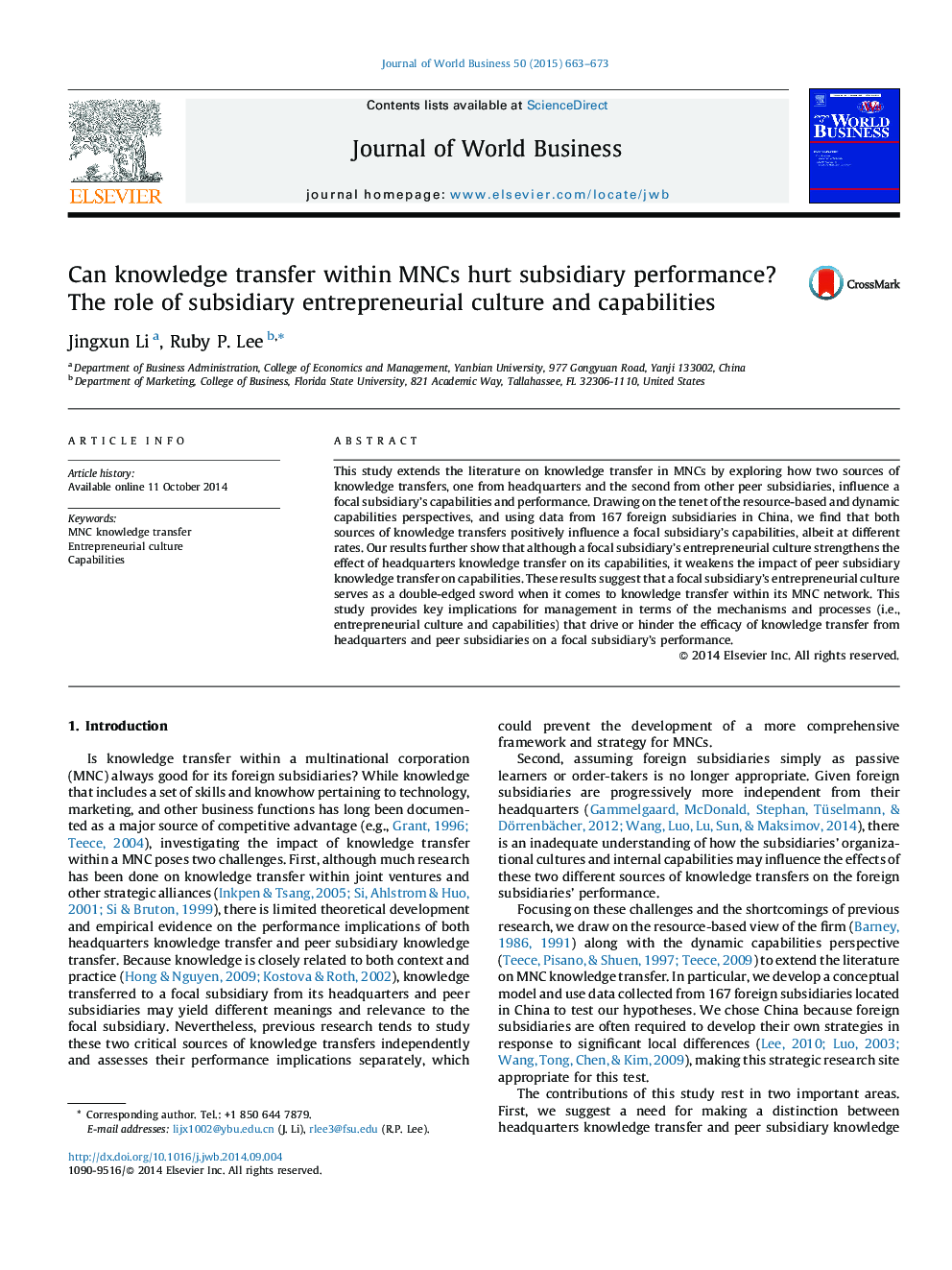| Article ID | Journal | Published Year | Pages | File Type |
|---|---|---|---|---|
| 1002367 | Journal of World Business | 2015 | 11 Pages |
This study extends the literature on knowledge transfer in MNCs by exploring how two sources of knowledge transfers, one from headquarters and the second from other peer subsidiaries, influence a focal subsidiary's capabilities and performance. Drawing on the tenet of the resource-based and dynamic capabilities perspectives, and using data from 167 foreign subsidiaries in China, we find that both sources of knowledge transfers positively influence a focal subsidiary's capabilities, albeit at different rates. Our results further show that although a focal subsidiary's entrepreneurial culture strengthens the effect of headquarters knowledge transfer on its capabilities, it weakens the impact of peer subsidiary knowledge transfer on capabilities. These results suggest that a focal subsidiary's entrepreneurial culture serves as a double-edged sword when it comes to knowledge transfer within its MNC network. This study provides key implications for management in terms of the mechanisms and processes (i.e., entrepreneurial culture and capabilities) that drive or hinder the efficacy of knowledge transfer from headquarters and peer subsidiaries on a focal subsidiary's performance.
